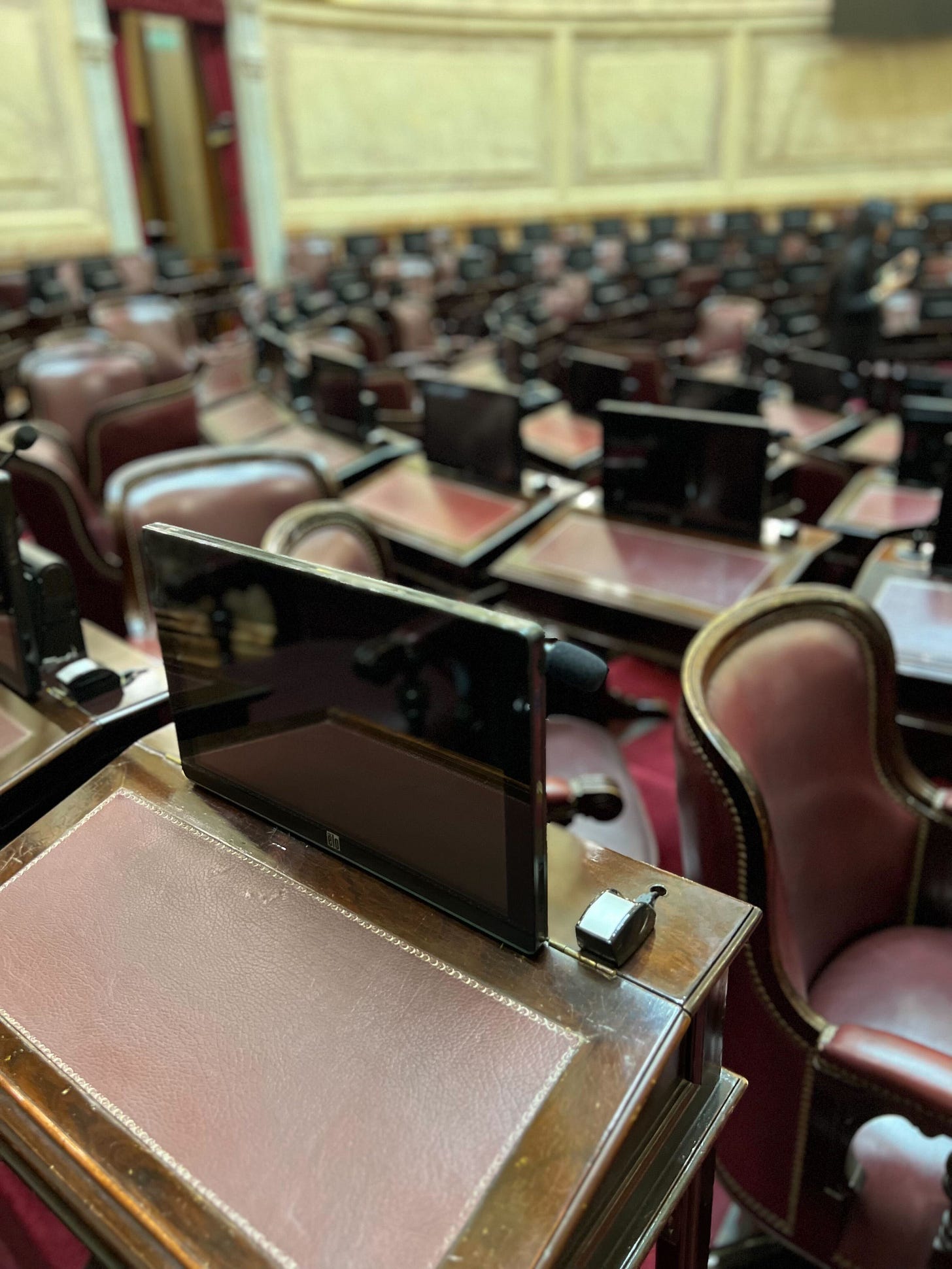POPVOX Foundation’s ModParl team recently analyzed data from 2022 and 2023 to understand how legislatures in the Americas and Europe manage absenteeism and proxy voting. Our study reveals clear differences in how formal rules are set up and enforced and how exceptions are made for special circumstances. Data were collected through a review of official documents, such as constitutions and legislatures’ internal rules.
Formal Absenteeism Rules: Who’s Got Them?
Our study found that many legislatures have established formal rules on absenteeism. Overall, thirty-one legislative bodies have clear policies while 20 do not. In the Americas, for instance, fifteen legislatures have defined attendance rules compared to nine that do not. In Europe, sixteen follow formal guidelines versus eleven that do not. Although the data do not detail every country’s policy specifics, these figures suggest that in the Americas, there is a slightly stronger emphasis on holding legislators accountable with attendance standards.
When Rules Aren’t Enough: Enforcement and Penalties
Having rules is one thing but enforcing them is another. Among the legislatures with absenteeism guidelines, only 20 impose penalties for excessive absences, leaving thirty-one without any form of sanctions. So while rules exist, many bodies are reluctant to enforce them strictly. Some legislatures in the Americas might rigorously apply penalties, whereas others take a more lenient approach, a pattern that is even more pronounced in Europe.

Exemptions: Flexibility in Practice
Flexibility is key when it comes to handling justified absences. Exemptions for circumstances such as medical leave, parental responsibilities, or official duties help accommodate personal challenges. The data show that twenty-four legislatures offer such exemptions, while twenty-seven do not. For example, in the Americas, fifteen legislatures allow exemptions — making it possible for a new parent to miss a session without facing penalties — compared to only nine in Europe. This more flexible approach can be vital for balancing strict attendance rules with real-world needs.
Proxy Voting: Exceptions for Special Circumstances
Proxy voting is generally restricted or prohibited in most legislatures. Temporary measures during the COVID-19 pandemic — like remote proxy voting — were generally rolled back once the emergency subsided. However, exceptions do exist for special circumstances.
Bolivia allows alternate Senators to vote on behalf of an incumbent who is absent due to a justified impediment.
Peru permits substitute Representatives to step in for elected Members — a policy that can help accommodate situations such as the challenges faced by new parents.
Costa Rica does not allow for proxy voting, but does provide for virtual voting during emergencies like public calamities, offering a way to maintain legislative functions when in-person attendance is not possible.
Greece allows their Members to delegate their vote temporarily while on official missions abroad.
By contrast, Panama explicitly disallows proxy voting under its National Assembly’s internal rules, reflecting a more rigid stance on direct participation.
Even in countries where proxy voting is generally off-limits, these exceptions highlight a nuanced approach. By allowing proxy voting for special circumstances, legislatures can balance the need for accountability with the realities of personal and emergency situations.
The Takeaway
While many legislatures have formal absenteeism policies, there is significant variation in how strictly these rules are enforced and how flexible they are with exemptions. Proxy voting remains largely restricted, but important exceptions — such as those accommodating new parents — demonstrate that legislatures can adapt to extraordinary circumstances. Examples from Bolivia, Peru, Costa Rica, and Panama illustrate this diversity in practice, offering valuable lessons for scholars, practitioners, and anyone interested in how democratic participation is managed across different regions.





